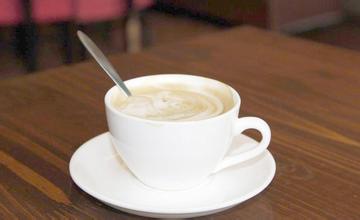Flavor description of Salvadoran Coffee beans introduction to Grinding and Calibration method
Features of Salvadoran coffee:
Coffee from El Salvador is a specialty of Central America, where it is light, fragrant, pure and slightly sour.
Flavor: balanced taste and good texture
Recommended baking method: moderate to deep, with a variety of uses
★: general
Market for Salvadoran coffee:
The best Salvadoran coffee is exported from January to March, and 35% of the extra hard beans are exported to Germany.
In 1990, the government of El Salvador privatized part of the coffee export industry, hoping to increase the income rate of coffee in the export market.
The coffee beans from the estate are washed at Mauricio Salaverria's El Divisadero processing plant in Ataco, and then evenly dried in an African elevated shed bed with the help of sun and ventilation. Following the career of his parents and grandparents, Mauricio has been associated with coffee since childhood, especially the coffee fields that focus on boutique coffee. Most of them are harvested mechanically in order to achieve economic benefits. When 75% of the coffee fruit in the coffee garden turns red, mechanical harvesting is started, followed by the same pre-washing operation, which is moved into the sink to remove floating beans, sift out the sunken beans, and then use a large pulp screening machine to dig out the pulp and remove the pods covered with pectin. The next stage is separate from the washing method: the sticky pods do not need to be moved into the tank to ferment, but to the outdoor bean drying farm. Because of the dry climate in Brazil, the sticky pectin on the pods will harden in about a day or so. Then use a large number of manpower to turn up and down, so that the pods dry evenly inside and outside, so as not to return to moisture and stink. For about two to three days, with the help of the natural forces of sunlight and dry climate, the pods can achieve a certain degree of dehydration. Then further dry with a dryer, the water content is reduced to 10.5%, and the pods are stored in a special container for about 10 days to further mature, in order to stabilize the quality, remove the sheepskin (pods) before export, remove the coffee beans, and pack them in grades.
[country]: El Salvador
[manor]: Himalayan Manor
[producing area]: Santa Ana
[altitude]: 1580 to 1720 m
[treatment]: half-sun
[variety]: red bourbon, Tibika
[processing plant]: El Divisadero
[flavor]: plum, brown sugar, red wine acidity

Important Notice :
前街咖啡 FrontStreet Coffee has moved to new addredd:
FrontStreet Coffee Address: 315,Donghua East Road,GuangZhou
Tel:020 38364473
- Prev

Sidamo Lion King Coffee Bean Grinding scale taste Manor treatment Variety introduction
Sidamo Lion King Coffee Bean Grinding scale Manor treatment Variety introduction won 92 and 94 points from the authoritative coffee review website Coffee Review in 2010 and 2012. The producing area belongs to volcanic soil with rich nutrients and good drainage. These fertile nutrients are maintained by the degradation of natural organic matter. This batch is located in the city of Dill
- Next

Introduction to the description method of Brand Taste and Flavor of Colombian Sun Coffee
Columbia Sun Coffee how to describe the characteristics of the brand taste flavor description method introduces the territory of towering mountains, highlands, plateaus, valleys and plains, terrain diversity. The geology of the area belongs to fertile, well-drained volcanic soil with a depth of nearly two meters and a dark brown or brown surface soil. The biggest advantage of this place is that the soil fertility is through organic matter.
Related
- Detailed explanation of Jadeite planting Land in Panamanian Jadeite Manor introduction to the grading system of Jadeite competitive bidding, Red bid, Green bid and Rose Summer
- Story of Coffee planting in Brenka region of Costa Rica Stonehenge Manor anaerobic heavy honey treatment of flavor mouth
- What's on the barrel of Blue Mountain Coffee beans?
- Can American coffee also pull flowers? How to use hot American style to pull out a good-looking pattern?
- Can you make a cold extract with coffee beans? What is the right proportion for cold-extracted coffee formula?
- Indonesian PWN Gold Mandrine Coffee Origin Features Flavor How to Chong? Mandolin coffee is American.
- A brief introduction to the flavor characteristics of Brazilian yellow bourbon coffee beans
- What is the effect of different water quality on the flavor of cold-extracted coffee? What kind of water is best for brewing coffee?
- Why do you think of Rose Summer whenever you mention Panamanian coffee?
- Introduction to the characteristics of authentic blue mountain coffee bean producing areas? What is the CIB Coffee Authority in Jamaica?

